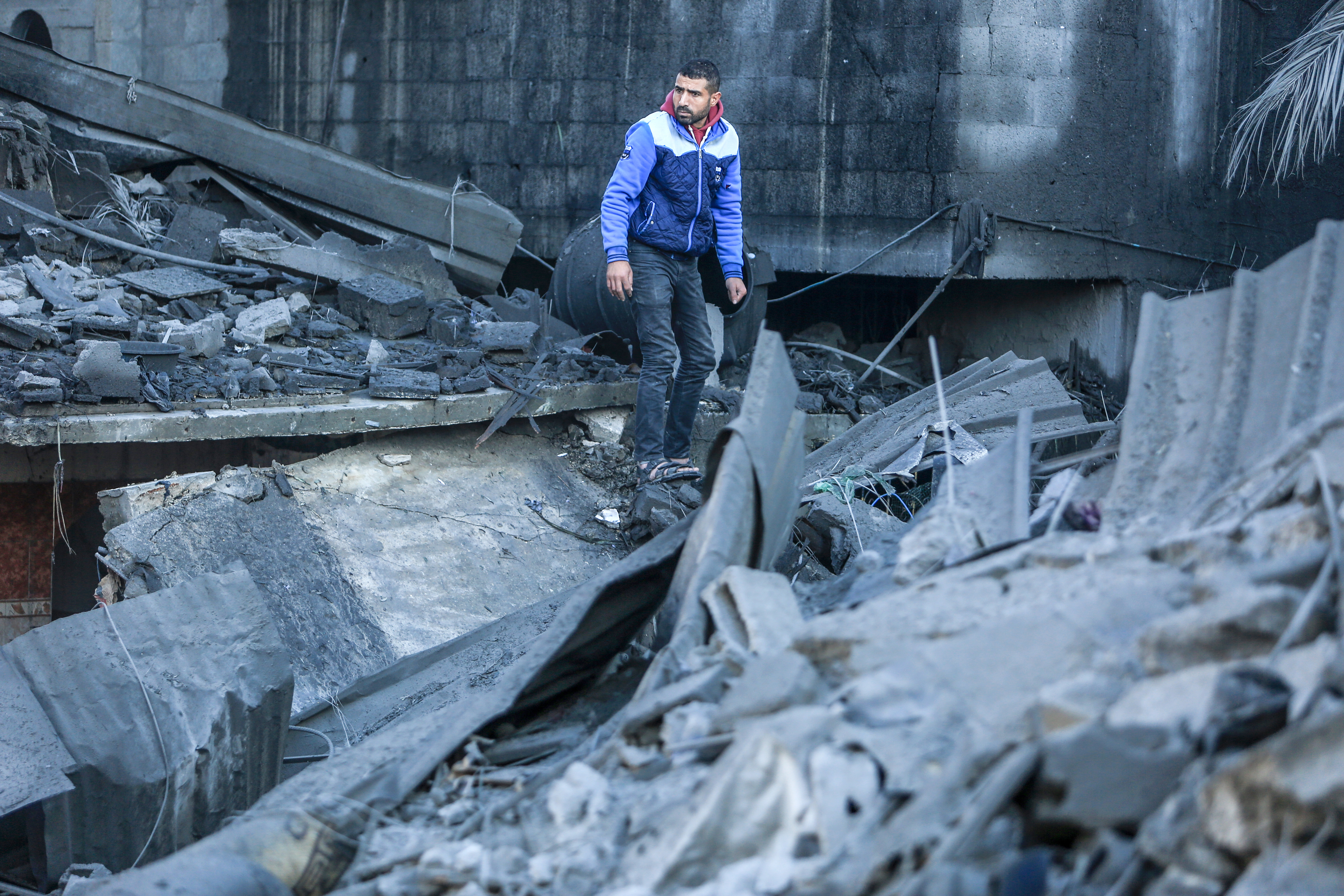
Israeli authorities have announced the temporary reopening of the Karem Abu Salem crossing with Gaza, called Kerem Shalom by Israel, acquiescing to US calls to allow more humanitarian aid into the strip as fighting grinds on.
In a statement on Friday, Israeli Prime Minister Benjamin Netanyahu’s office said that the country’s cabinet had approved the “temporary” measure, which US officials hailed as a positive step.
“The cabinet’s decision determines that only humanitarian aid arriving from Egypt will be transferred into the Gaza Strip this way,” the statement said.
For the last two months, the Rafah crossing with Egypt has been the only point of entry into the strip, where a trickle of assistance has done little to address a humanitarian crisis driven by an Israeli assault that has killed more than 18,000 people and displaced 80 percent of all residents.
As Israel’s campaign in Gaza has continued, the United Nations and other world bodies have warned of severe shortages of food, clean water and medicines.
UN agencies say that as the bombardment has continued, it has become impossible to distribute aid outside Rafah, where the population has been swollen to approximately one million with hundreds of thousands of displaced people coming from areas further north.
The decision comes one day after White House National Security Adviser Jake Sullivan met Israeli officials to discuss the timeframe and style of Israel’s military operations in Gaza, as Israel and its US ally come under growing international pressure to bring the fighting to an end.
“It’s a significant concession, the Israelis would say, because right at the outset of this war Israel said there’ll be no further contact, no further links between Gaza and Israel, while they’re now having to open up that Kerem Shalom crossing for goods under US pressure so that Israel can meet its agreement of [letting in] 200 trucks of aid a day,” Al Jazeera’s Bernard Smith reported from Tel Aviv.
“And as an indication, before the war started, there were 500 trucks a day going into Gaza, when there was much less need for emergency aid.”
“President [Joe] Biden raised this issue in recent phone calls with Prime Minister Netanyahu, and it was an important topic of discussion during my visit to Israel over the past two days,” Sullivan said in a statement on Friday, calling the opening a “significant step”.
Sullivan also met on Friday President Mahmoud Abbas, who leads the Palestinian Authority in the occupied West Bank, to discuss the future of the PA and increasing violence against Palestinians by Israeli settlers.
The official Palestinian news agency Wafa reported that Abbas told Sullivan that the US must “intervene to force Israel to stop its aggression against our people in the West Bank, including occupied Jerusalem”.
The US has suggested that the PA could take control of the Gaza Strip in the aftermath of the Israel-Hamas war, but Abbas and the PA are highly unpopular among the Palestinian population due to the policy of security coordination with Israel.
Many Palestinians see the policy as a form of complicity in Israel’s occupation.
Reporting from the city of Jenin in the occupied West Bank, Al Jazeera correspondent Charles Stratford also noted that many Palestinians have little trust in the words of US officials.
“You speak to any Palestinian on the ground here and there is absolutely zero trust in any kind of rhetoric, any kind of statement, that is coming out from the US administration, whether it be Jake Sullivan or Joe Biden. There is deep, deep, distrust,” said Stratford.







